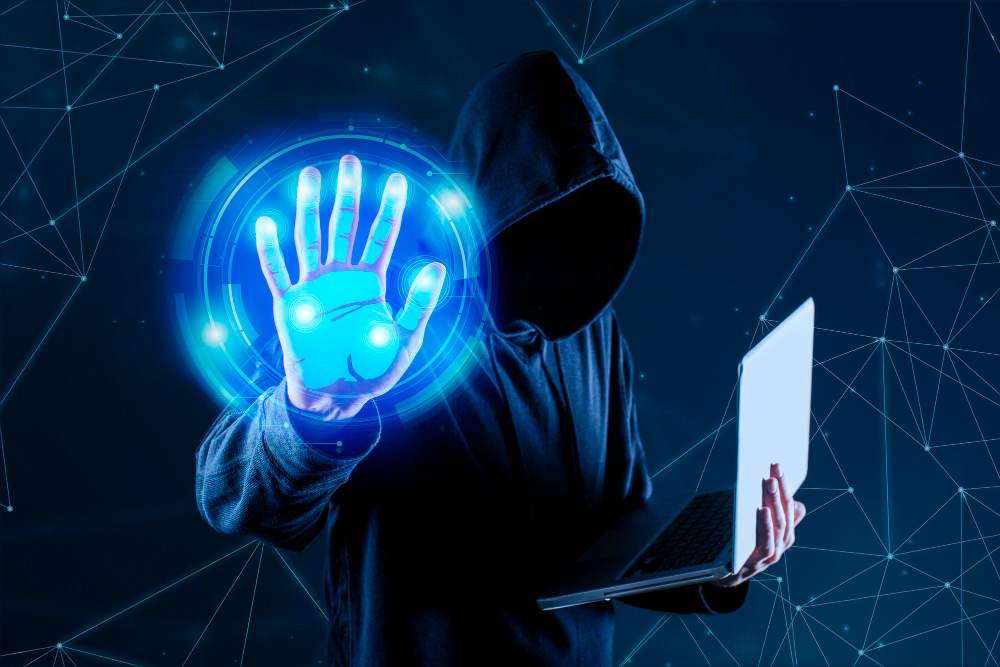Technology has always been a grateful topic driving the creativity of authors of novels, series, and films. The Matrix series or the works of Stanisław Lem are just a drop in the sea of art inspired by modernity. It is no different in the case of computer crimes – mysterious hackers are present on the pages of popular and beloved works of literature.
What makes people so eager to devour work about computer hackers? Usually, antiheroes are presented in an exciting way – they lead a double life, hiding from monitor screens at night and harming organizations and even entire governments. They remain elusive and wreak havoc, reminiscent of a modern-day Guy Fawkes plotting against the English Parliament.
Book and movie stories about hackers are, of course, colored in such a way as to encourage the audience. Real cybercriminals rarely use their IT skills to conspire against world powers. Of course, there are also those, but ordinary internet users are the most common victims of hackers. Not all criminals can even code or create malicious viruses – some use social engineering, such as phishing, to manipulate unwitting victims. That is why learning how to use an antivirus, a USA VPN, and other security tools is essential.
Cybercriminals living among us are waiting for individuals who are not careful enough. They often attack with the least amount of effort – for example, by using fake hotspots placed near restaurants or hotels and eavesdropping on public networks to extract personal information. Despite this, hackers inspire authors of fantasy novels. Here are the 3 most captivating stories featuring computer geniuses who use their skills not necessarily for good causes.
The Blue Nowhere by Jeffery Deaver
Blue Nowhere is a novel that realistically reflects how illusory the sense of anonymity on the web is. The crime story tells about a serial killer who searches for his victims via the internet – he gets to know them and learns more and more about them until he finally lures them to the real world. The plot is also a cautionary tale for us – the antagonist uses, among other things, data that people themselves willingly post on social networks.
On the other side of the barricade is an investigation team and Wyatt Gillette – a hacker formerly convicted of hacking into a government information system. So we are dealing with a clash of two computer geniuses, each trying to outsmart the other. Deaver’s novel makes us realize how dangerous it can be to unknowingly surf the internet and share too much personal information where everyone has access to it.
Someone We Know – Shari Lapena
The Canadian writer’s novel tells the story of an ordinary family. We meet Olivia and Paul Sharpes – the parents of sixteen-year-old Raleigh. Their peace is disturbed when it turns out that the teenager committed two burglaries in houses in the neighborhood. Oddly enough, he didn’t steal anything – instead, he took an interest in the property owners’ computers. As he said himself, he wanted to practice his hacking skills. He also learned the deeply hidden secrets of computer owners. When a resident of one of the houses that Raleigh broke into is murdered – the heroes of the novel face a mystery. It is not known who committed the crime – it could be a teenager, one of the woman’s admirers, her husband, or someone completely inconspicuous.
However, it is known that there are many suspects.
Digital Fortress – Dan Brown
Digital Fortress is Brown’s first novel. We are transported to a world where the National Security Agency has created a supercomputer with enormous computing power that is able to break any code. American services use it to brutally break the security of criminals and terrorists, thanks to which they are able to read their messages and thwart assassination plans.
NAS soon gains an opponent – the Japanese cryptologist Ensei Tankado, who is the creator of the world’s most powerful algorithm – the title Digital Fortress. A hacker makes demands on the agency, threatening to release an unbreakable algorithm to the world. Brown’s novel is a sensation and an encouragement to consider what privacy on the web looks like and what may happen to it in the near future.
Summary
Novels about hackers and cybercriminals often portray them as mysterious, elusive anti-heroes. The reality is a bit grayer, but that doesn’t mean we can’t fall victim to a scammer too. Hacker attacks – although perhaps not as daring as in the books – happen every day. That is why we, as network users, should take care of our security.
The basic solution to neutralize many threats is a decent antivirus program installed on a computer, tablet, or smartphone. Antiviruses prevent numerous malware infections every day that can damage equipment or steal confidential information (personal data or access to bank accounts). Anti-virus software and system security must also be regularly updated.
As internet users, we must also be aware of the importance of using strong and unique passwords for accounts on various portals. If we use the same password everywhere – one data leak can make a hacker gain access to all our profiles.
Jack Griffiths
Latest posts by Jack Griffiths (see all)
- Why You Should Pay More Attention to e-Learning Marketing - December 19, 2022
- Live Flight Tracking Software: Gain Full Operational Awareness and Reduce Operation Costs - December 14, 2022
- All About Chemical-Resistant Epoxy Flooring And Why Do You Need One? - December 9, 2022





